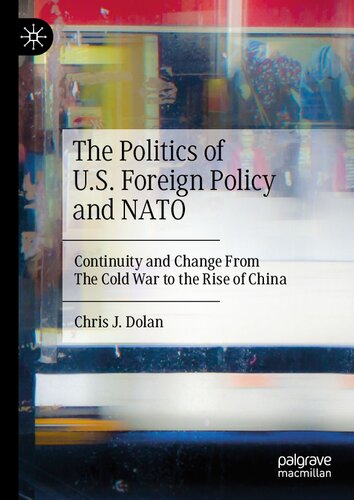

Most ebook files are in PDF format, so you can easily read them using various software such as Foxit Reader or directly on the Google Chrome browser.
Some ebook files are released by publishers in other formats such as .awz, .mobi, .epub, .fb2, etc. You may need to install specific software to read these formats on mobile/PC, such as Calibre.
Please read the tutorial at this link: https://ebookbell.com/faq
We offer FREE conversion to the popular formats you request; however, this may take some time. Therefore, right after payment, please email us, and we will try to provide the service as quickly as possible.
For some exceptional file formats or broken links (if any), please refrain from opening any disputes. Instead, email us first, and we will try to assist within a maximum of 6 hours.
EbookBell Team

4.3
28 reviewsThis book argues that domestic politics and political pressures determine the extent of the U.S. role in the North Atlantic Treaty Organization (NATO) from the emergence of containment strategy against the Soviet Union to the Russian war in Ukraine. NATO has evolved in the domestic politics of U.S. foreign policy from a conventional military alliance to contain the Soviet Union during the Cold War to an important instrument in the competition against China and Russia. This book examines American domestic political implications of U.S. security commitments to NATO. It adopts a historical approach and places the U.S. foreign policy toward NATO on the domestic level of analysis by highlighting domestic political determinants in the foreign policymaking process. It also highlights the connections between the Biden Administration’s definition of a struggle between democracy and autocracy and the state of American democracy following the January 6th insurrection by far-right Trump extremists. U.S. These include the evolution of American attitudes towards NATO, societal and economic factors, and entrenched bureaucratic interests shaping U.S. foreign policy. The book incorporates the contributions of major theoretical works on the domestic political factors that shape foreign policy preferences and behavior to understand the extent to which domestic politics influences the historical evolution of the U.S. role in NATO and American foreign policy toward Europe.